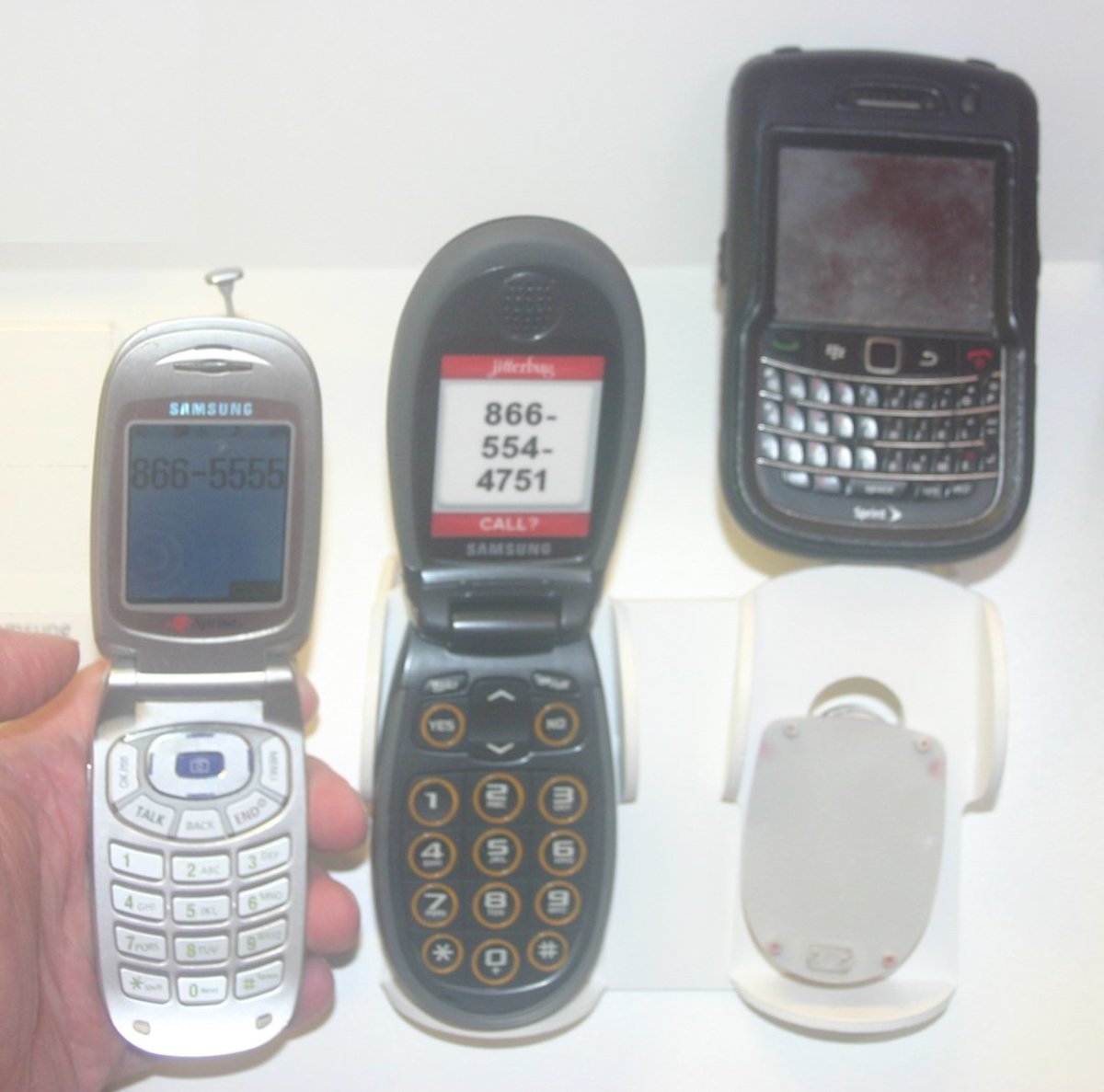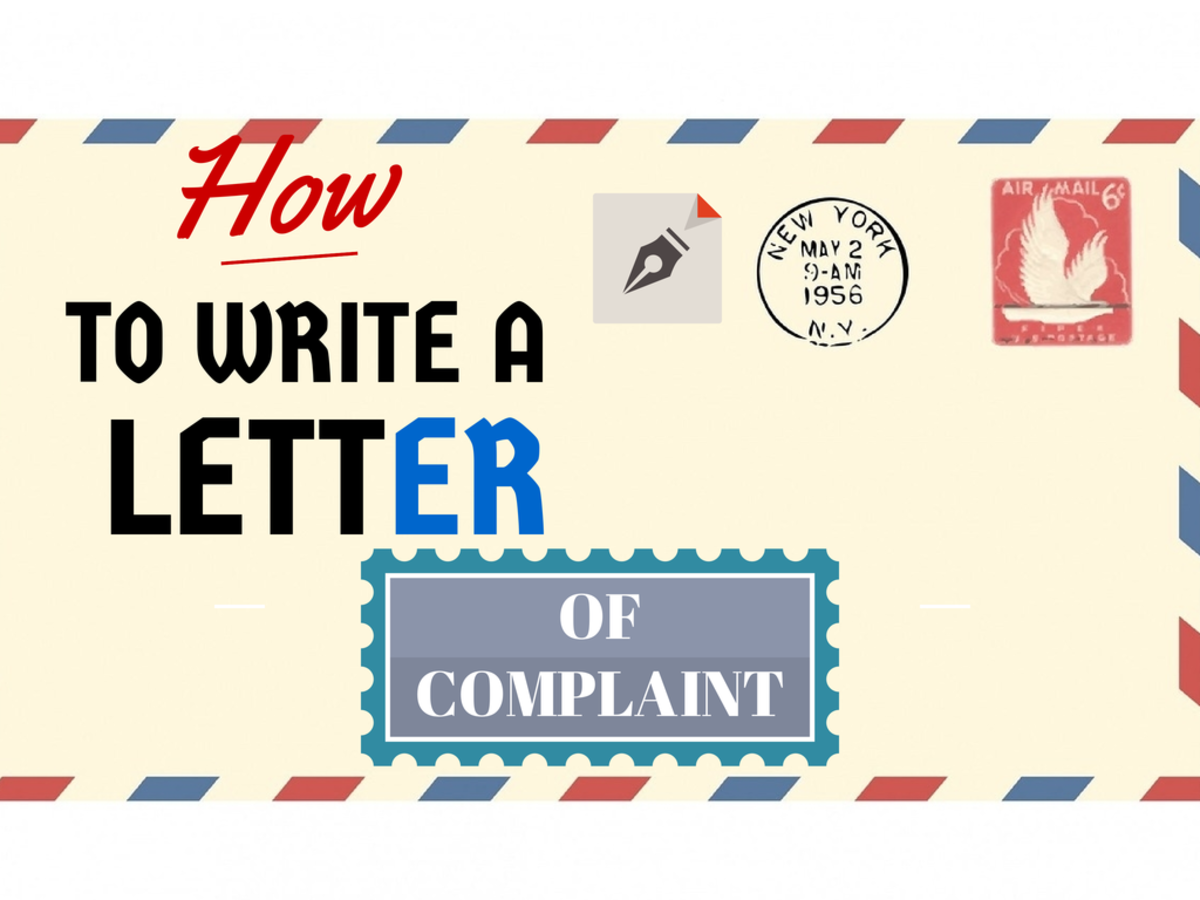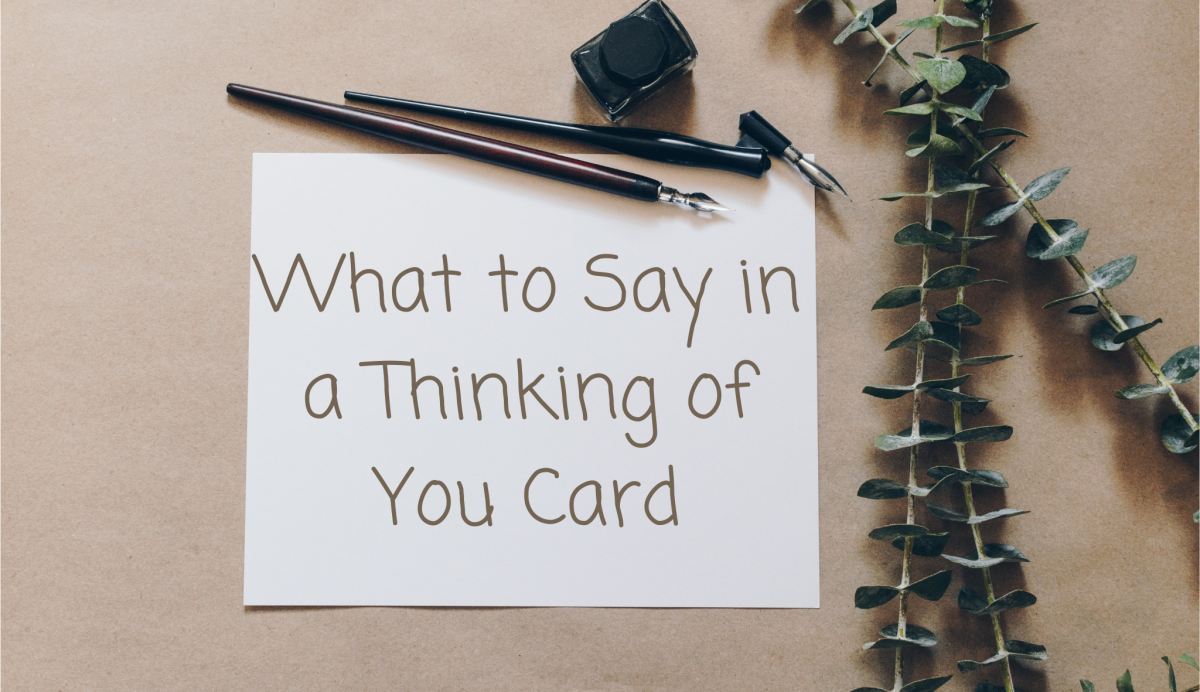5 Tips on Writing a Complaint Letter

What is a Complaint Letter
A complaint letter can be a very difficult thing to deal with. Someone has to write a letter that expresses their viewpoint as to why they feel they received poor customer service, and the organization receiving the letter has to read the letter and take action on it. If the person comes off as a rambling idiot, then the company won't take the complaint seriously. If the person issuing the complaint does it tactfully, then the company may take action on it.
This article will cover the following topics:
-
5 Tips on Writing a Complaint Letter
-
How to E-Mail a Complaint Letter
-
Using Social Media for Complaints
-
Experiences in Writing Complaint Letters
Have you ever had to write a complaint letter?
5 Tips on Writing a Complaint Letter
Below are five tips to consider when writing your complaint letter.
- Write the letter as a standard business letter. Include their address, your address, greet the organization properly, and sign the letter at the bottom. This is considered to be a standard format for business letters, and will be taken more legitimately that way. You can search for examples of these type of letters online.
- Provide all relevant details. Who, what, when, where, why, how. That is as simple as it gets. You will want to provide all factual information. Don't go overboard and don't exaggerate, just provide the details of the incident. Don't insert your own personal opinion. Your opinion doesn't mean a thing, but the facts do.
- Don't ask to be compensated. The quickest way to be ignored is demanding money or something else for an incident that happened. Too many people do that and it just seems like you want to make a mountain of a mole hill just so you can get a payoff. You can state what you have lost due to the incident, but don't state you want to be reimbursed for those losses. If anything, the company will give you something if they feel your complaint is justified.
- Be polite and professional. Don't use cuss words, don't degrade anyone, or throw insults. Be respectful in your complaint. If the letter reads like it's coming from a levelheaded person, then the person reading it will treat you as such and take your complaint that much more seriously.
- Provide copies of documentation. Copies of receipts, pictures of anything related, etc. should be included in the letter. This gives the organization something to look at, and if necessary, take to someone else to have looked at. It again shows how serious the complaint is by the actions you are taking.
Six W's
| Detail
|
|---|---|
Who
| Names of people you spoke to, who was rude, etc.
|
What
| Details as to what happened regarding the incident.
|
When
| Dates and times of each incident. Try to match the time stamps of any receipts or documents you received during the incident.
|
Where
| Locations, departments, etc. of where the incident took place.
|
Why
| Why did the incident happen? Why did it turn into a complaint?
|
How
| How the incident happened or how it's impacting you.
|
The six W's in writing a complaint letter.

How to E-Mail a Complaint Letter
A lot of organizations use e-mail as a fast and easy way to receive feedback and complaints from their customers. It's very effective, but also very easy to abuse. While the same tips above can apply to e-mailing complaints, heed the following before sending off that complaint e-mail:
- Ensure you are sending it to the company e-mail address. Commonly you can find this on the organization's website. Don't trust other e-mail addresses you could find elsewhere. You could be sending very private information and you don't want it falling into the wrong hands.
- Just because it's an e-mail, doesn't mean you can be lazy with your writing. I don't know how many times I have seen e-mails riddled with poor grammar, horrible spelling, and just plain don't make sense. So don't lax on your writing. Make it as professional as you would a business correspondence.
- Use a professional e-mail address. Don't use a silly or inappropriate e-mail address when sending out your complaint e-mail. Use one that includes part of your name, for example. It just looks more professional.
- Attach pictures. If you have pictures associated with the incident, attach them to the e-mail. Even if the pictures are of receipts. It adds to your credibility and gives the organization more information to address your complaint.
- Use forms to submit your complaint. Not all organizations provide an e-mail address to submit your complaint. Instead, they have forms you fill out and submit on their website. This can help pinpoint information they need to look into your complaint.

Using Social Media for Complaints
Social media has grown in such popularity, most organizations use it to communicate to the public. Social media has hurt and helped those organizations, and has brought about a revolution in handling customer complaints. A customer can post a video of poor customer service they have received online, and if it goes viral, it could spread throughout the internet. Organizations have to quickly respond to those types of complaints. There are a variety of ways social media can be used to make a complaint against an organization, but there are disadvantages to it as well. Here are some of the things to consider complaining online:
- Words don't mean too much. The problem with the internet is that it creates anonymity. Posting a Facebook update saying a company gave you poor service won't amount to much. Your friends and family may listen and not go to that same company, but that company may never know it. Twitter allows for a more direct way to voice a complaint to a company, but since it's only small portions of information, it may not be as effective either. If the organization has a forum, you could address your complaint with others and see what is said about it.
- Pictures speak a thousand words. Posting a picture of something an organization did wrong is a lot stronger than words. While photos can be manipulated to look bad, that's not always the case. Plus photos can be used to elaborate on a complaint. For example, I took a photo of some food I purchased from Jack in the Box, and used that to make a full length image stating what my complaint was. This photo is also made for Pinterest, making it an ideal photo to spread around on that website. In this case, some humor was included. Humorous complaints can spread around faster than ones done in all seriousness. They can be petty in nature, but enough of them from all sorts of people can get the point across.
- Videos are the strongest complaints of all. This is not a video of you complaining about an organization, those are a dime a dozen and no one is going to watch every single video like that. Posting a video of an incident, damage, etc. that occurred is an effective complaint video. A video can spread like wildfire, make it on national news, and could be noticed by the company. YouTube is obviously the best site to do this with, but a personal website or blog can be just as effective.
- Consider the social media site. If you do plan to use a social media site, then consider the right one for the audience. Reddit can be a good choice for some, but Instagram for others. It's about reaching the right audience for your complaint.
Great Example of a Video Used as a Complaint
What do you think is the best way to issue a complaint?
Experiences in Writing Complaint Letters
I've had personal experience when writing complaint letters, most of them being successful. Here are a few examples:
- I wrote a complaint letter to a car dealership that lost my car for an entire day, delayed working on my car, and didn't verify who I was when I was picking up my car. My car was involved in an accident, and I took it to a dealership to have repaired. I was given a rental, but I had to pay the insurance on the rental. After my car still had not been repaired, I called to find out why. I was told they didn't have my car on the lot and couldn't find it. They found it a day later, but they had not started work on it yet. When I finally went to pick it up, they let me take it without verifying who I was. I complained about the above facts in a written letter, provided details, and the cost of the rental insurance. The dealership mailed me a letter apologizing for the incident, cut a check for what I had to pay extra, and personally called me to apologize. I now recommend them to others who need their car serviced.
- I was treated rudely at a warehouse store and reported it. I forgot my membership card, but went with a friend who shares a membership with me. Before when this happened, we would have two separate transactions using the same card, which was allowed by store policy. However, we always received flak from the cashier when we did that, as they stated they didn't like it. When we went to pay this time, the cashier told us that we couldn't have two separate transactions. I complained, and the supervisor was rude to me the entire time. She verified I had a membership and they separated our transactions. As a supervisor myself, I felt it was handled badly, so I e-mailed the company to advise them of my concerns. The store manager called me and we discussed it. He advised me what to do if I forgot my card in the future, and stated he would get the matter addressed. I was satisfied with this result.
- An employee at the drive thru at McDonalds spilled a drink on me, and McDonalds didn't do much to address the issue. Sometimes not all complaints are effective. I was in the middle of moving, so didn't have much food on hand. So I went to McDonalds for dinner. While the drive thru person was giving me my drink, she tipped it over spilling the drink on me and my car seat. Soaking wet, I asked for napkins, and she provided me with just a couple until I demanded more. She obviously didn't care she spilled the drink on me. Later, I e-mailed McDonalds to complain. A manager called me and stated they would contact me later about getting my car cleaned, as the seat was damaged due to the soda. Despite attempts to contact them again, they never followed through with helping getting my car cleaned.
Don't always expect to get something for your complaint. The most you may receive is an apology, which should be good enough in most cases.
This content is accurate and true to the best of the author’s knowledge and is not meant to substitute for formal and individualized advice from a qualified professional.
© 2013 David Livermore








